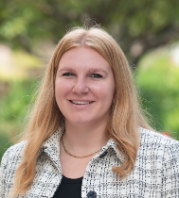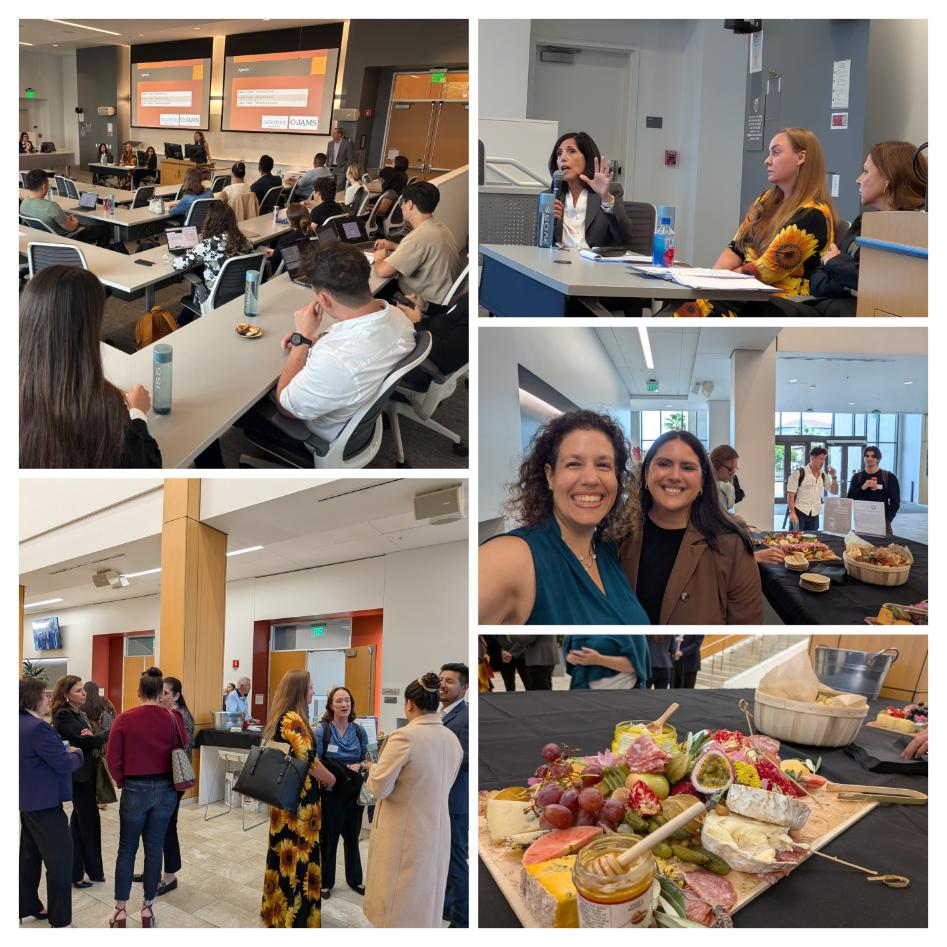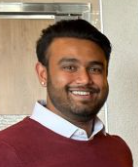Our Team Experience at the ABA Mediation Competition
Gabriella Pacula, JD '27, Jan 24, 2026
I am incredibly grateful to have had the opportunity to participate in the ABA Mediation Competition and for the time, care, and mentorship that went into my partner's and my preparation. The coaches were phenomenal, and I learned so much from everyone who contributed to the process, including the Honors Moot Court External (HMCE) Board members, Victoria Brea, JD '26, and Amanda Mitchell, JD '26, the professors, Prof. Gary Spitko and Prof. Melody Sequoia, Conflict Resolution Program Director, Leor Chechik, and past competitor Tim Zunich, JD '19, who generously shared their insight and experience.
The team-selection process began with an application explaining our interest in mediation and any prior experience, though no specific prior experience was required. The application was followed by a tryout where we participated in a 15-minute mock mediation based on a mini-scenario. During the tryout, Leor Chechik played the role of the mediator, while a member of the HMCE Board served as the client and judge, making the exercise both challenging and realistic.

One of the most rewarding parts of the competition was collaborating with my partner, Sahil Sagar, JD '26, and bouncing ideas off one another as we worked to creatively and thoughtfully represent our client's interests. The competition itself was especially engaging because it required us to think on our feed and maintain a strong command of both the law and facts in order to respond effectively to the other side's concerns, defenses, offers, and counteroffers in real time.
On the day of the competition, it was especially meaningful to work with real-life mediators and receive direct feedback on which strategies were effective and where alternative approaches could have better advanced our client's interests. It was also exciting to compete against other law students and observe the different strategies they employed. Overall, the experience was not only extremely fun, but it pushed me to grow as an advocate and sharpened skills that I know will translate directly into practice.
Author:
 |
Gabriella Pacula
|
My Key Takeaways on Mediation Ethics
Sahil Sagar, JD '26, Sept 30, 2025
The Conflict Resolution Program hosted a Mediation Ethics panel attended by 42 law students, attorneys, and conflict resolution professionals from the Bay Area. The panel included four prominent figures: Adriana Moore, a civil litigation attorney and mediator with 25 years experience; Laurie Mikkelsen, ADR Administrator for the Santa Clara County Superior Court; Tamara Lopez, veteran government litigator and mediator at JAMS; and Hon. Peter H. Kirwan, retired Superior Court Judge and long-time mediation professor at SCU Law. Hosted by Leor Chechik, the session and subsequent mixer highlighted best practices and practical dilemmas in mediation ethics.

Takeaways
Adriana Moore described transitioning from litigation to mediation after noticing her natural tendency to bring parties together and resolve disputes. Moore emphasized a mediator’s duty to serve as a reality check, leveraging subject-matter expertise to help parties assess the feasibility of proposed solutions. She shared that “when in doubt, ask a question rather than offering advice” - ensuring neutrality and maintaining trust.
Laurie Mikkelsen discussed her journey from psychology and environmental law to mediation and ADR administration. Mikkelsen highlighted that mediators must create an environment where participants feel respected and heard, regardless of the outcome. She stressed the importance of procedural satisfaction - ensuring that every step in the mediation process is fair, which often determines whether participants leave feeling content. Her work administering a diverse range of civil and probate ADR programs reinforced how emotional intelligence and active listening are indispensable tools.
Tamara Lopez recounted her experience as both a probate litigator and a mediator. Lopez pointed out how easily mediators can cross the line into inadvertent legal advice, and advocated for using strategic questions to guide discussion. She described how co-mediating offers a dynamic way to balance perspectives and empower parties’ informed self-determination, all while rigorously protecting confidentiality through private caucusing.
Judge Kirwan provided insights from nearly two decades on the bench and as a mediation instructor. He stressed that impartiality is the cornerstone of mediator conduct and recounted cases where stepping aside at the slightest hint of impropriety was necessary to preserve trust in the process. Kirwan illustrated how judges moving into mediation must remain vigilant against bringing courtroom habits, such as steering parties, into mediation settings, where party-led self-determination should prevail.
Personal Reflection
This event challenged and expanded my assumptions about what it means to be an effective mediator. The speakers’ experiences revealed that success in mediation hinges more on transparency, careful disclosure of potential conflicts, and on managing the process so everyone is genuinely included. The recommendation to “disclose, disclose, disclose,” even when in doubt, was especially memorable for its simplicity and importance.
I learned that mediators must avoid offering legal advice, and instead help participants reach their own conclusions through well-timed questions. This technique stands out as a valuable lesson for both legal classroom scenarios and future practice, fostering client empowerment and reducing risk.
Networking during the reception was another highlight—engaging conversations with seasoned practitioners and reconnecting with Professor Mikkelsen deepened my understanding of the mediation community’s collaborative spirit. These interactions gave me confidence about pursuing mediation work, and provided connections that may prove helpful in both future coursework and professional endeavors.
Author:
 |
Sahil Sagar
|